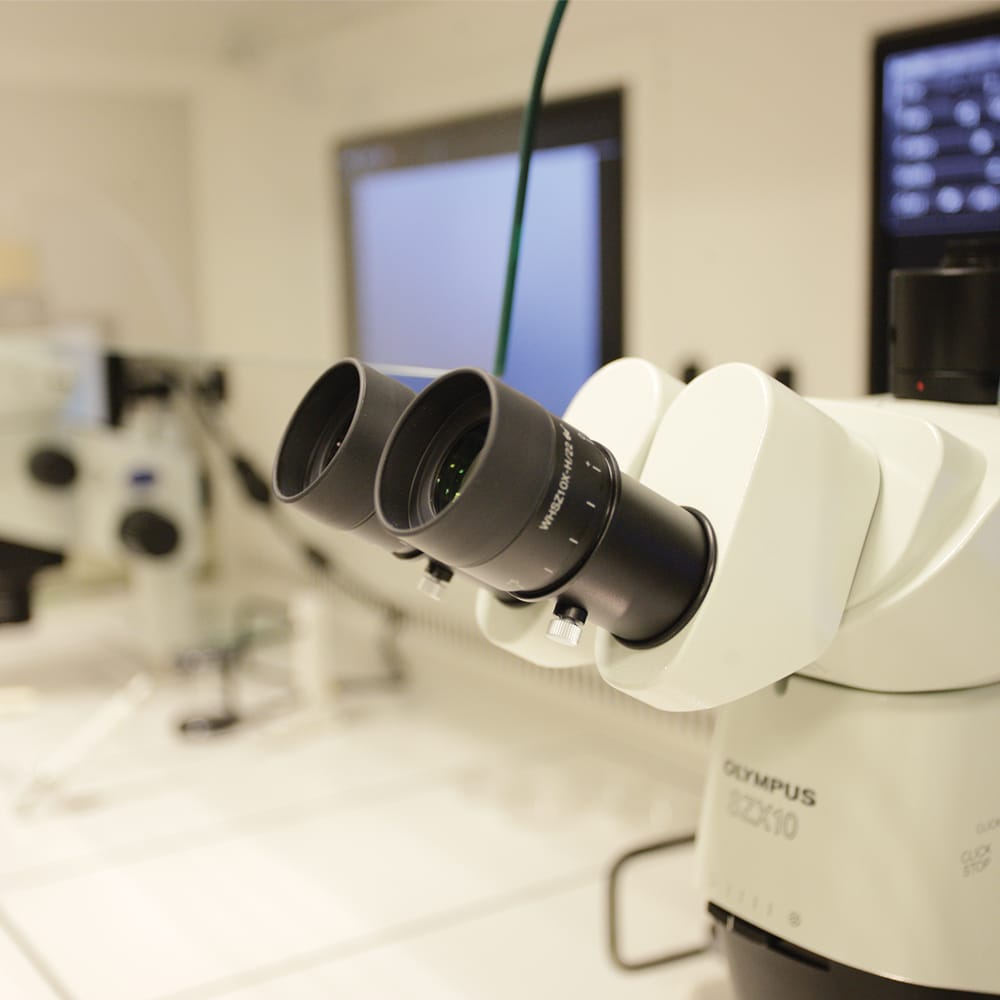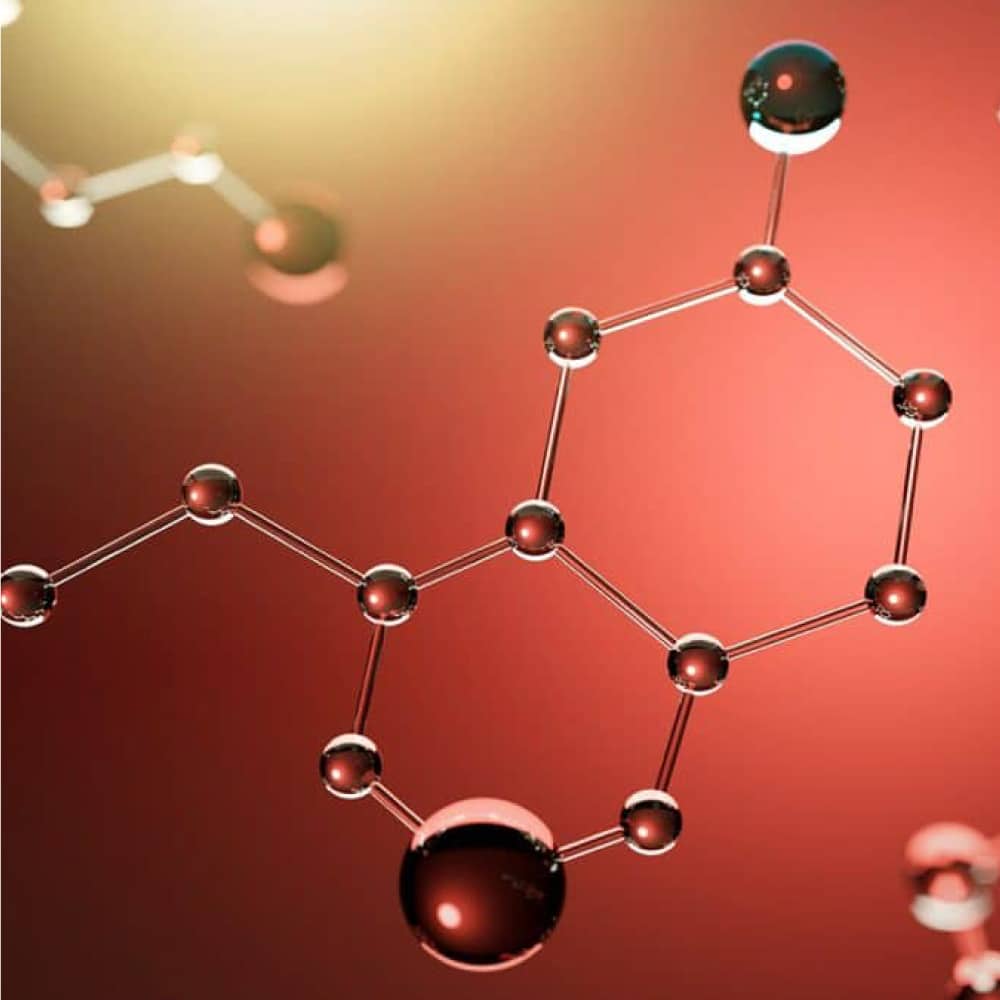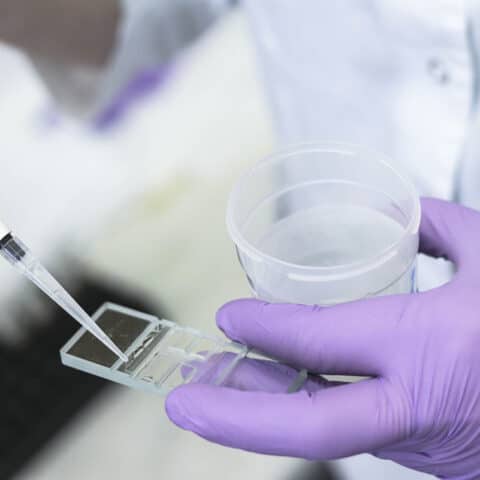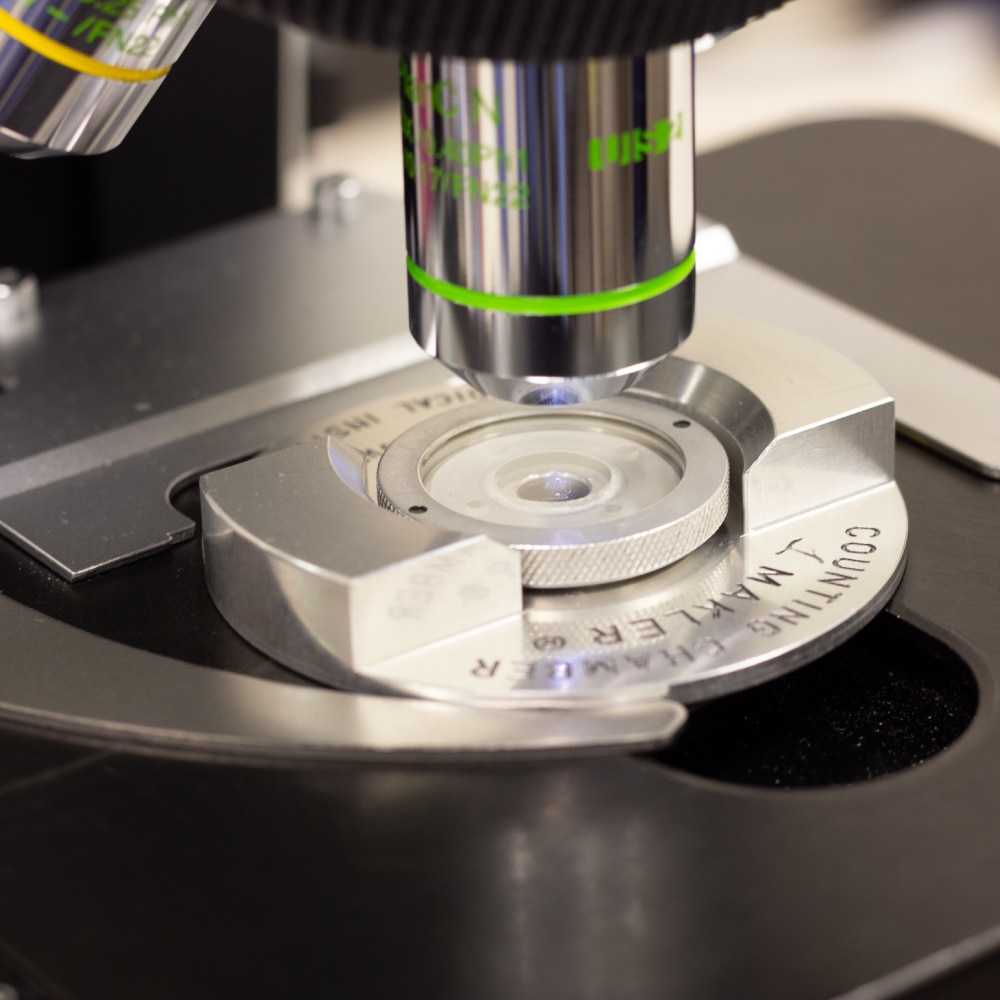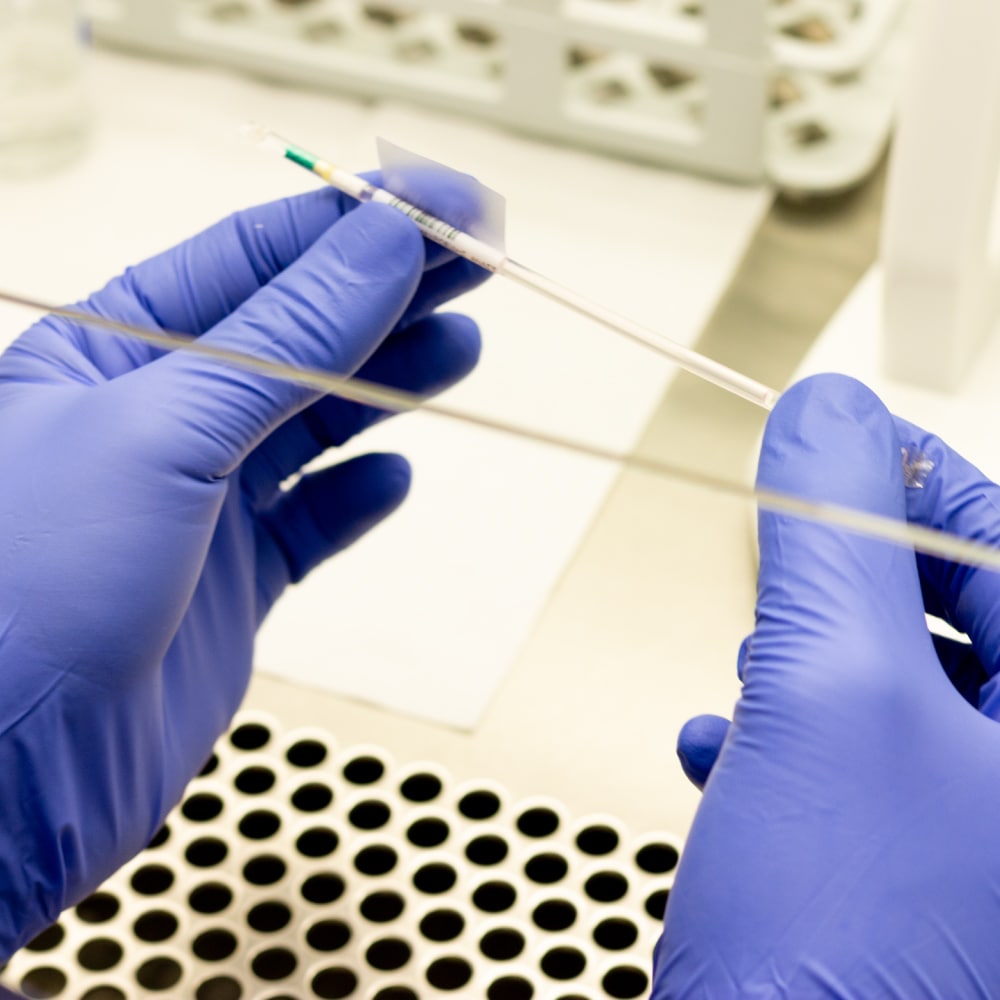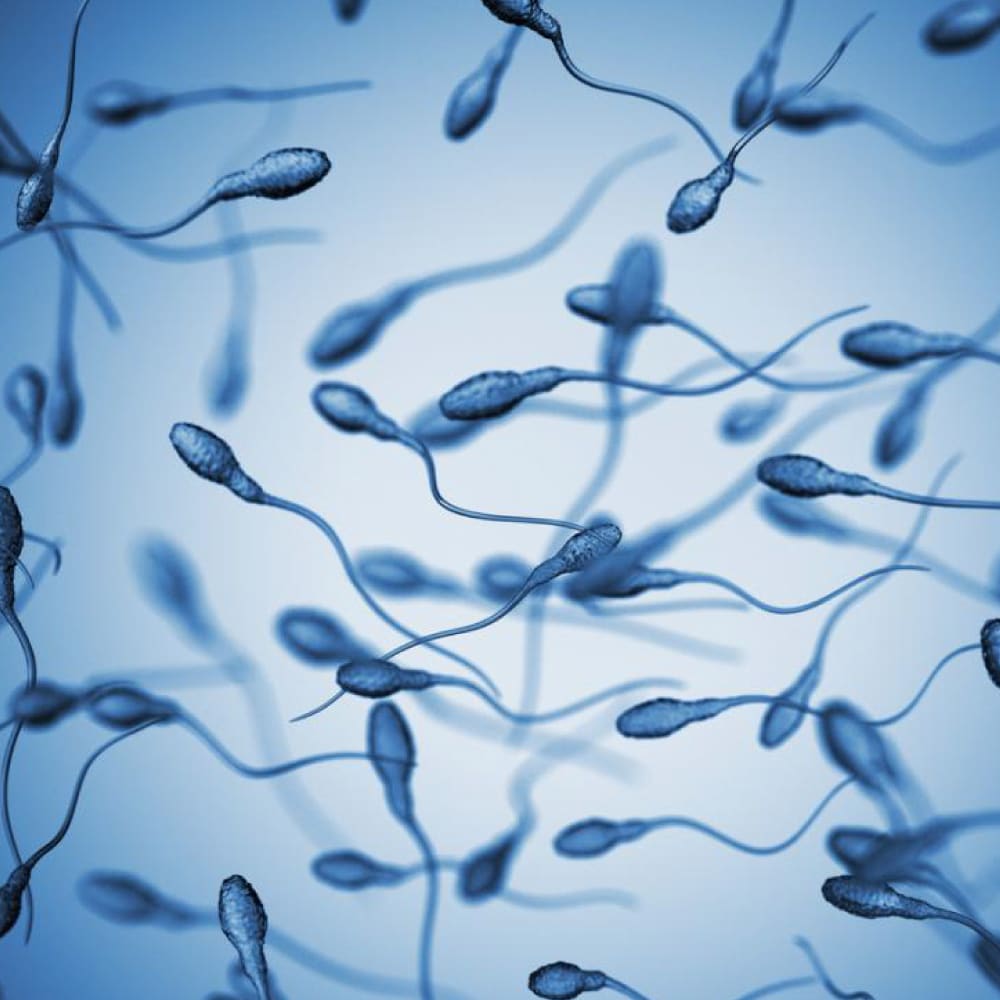Hormone Testing
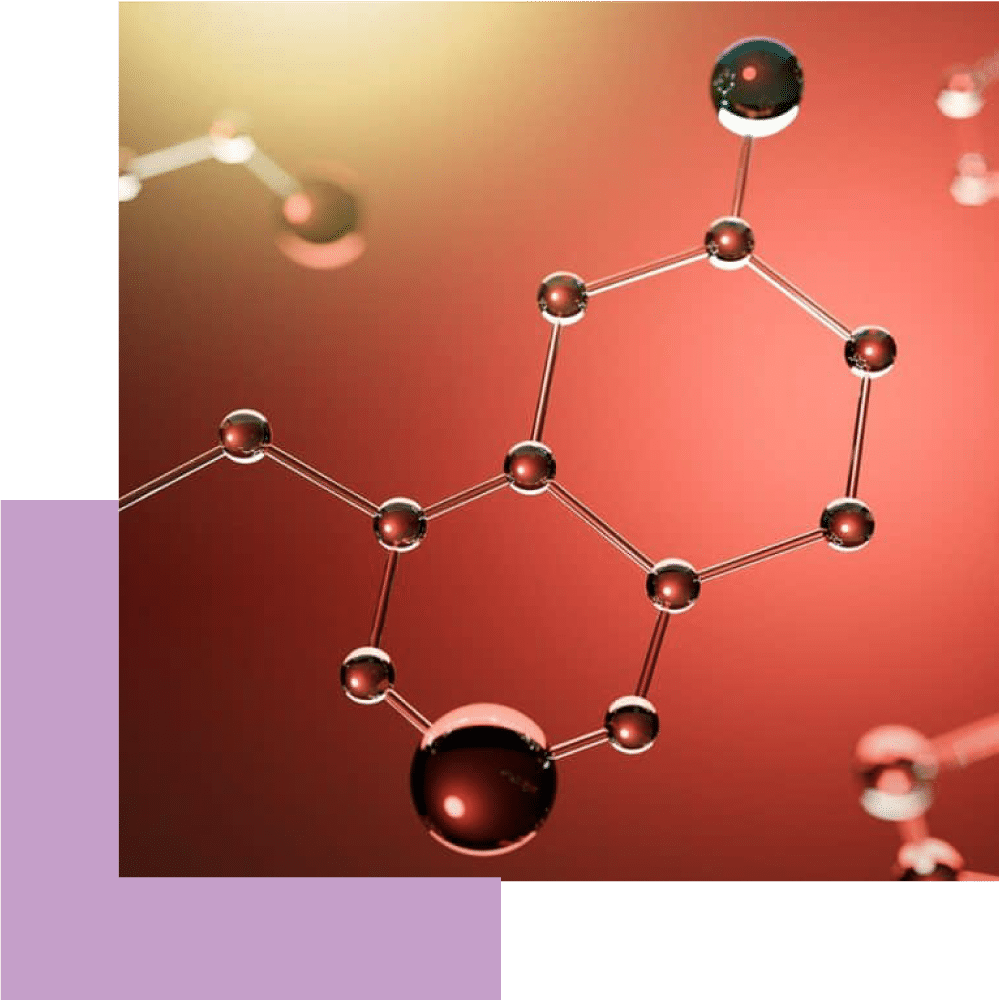
A hormone test is a blood test that measures the levels of hormones, which play a major role in sperm production.
As soon as a couple experiences fertility problems, hormone testing is one of the exams that the doctor recommends.
What is hormone testing?
A hormone test is a blood test that measures the levels of testosterone, FSH, LH, prolactin, TSH, estradiol and cortisol, i.e. the hormones produced by the pituitary gland, hypothalamus and testicles, which play a major role in sperm production.
Hormone testing and infertility
The body produces special hormones, known as gonadotropins, that help the testicles produce testosterone. This is of vital importance for releasing a satisfactory sperm count. If the pituitary gland does not produce gonadotropins, this has a direct effect on fertility. So, for example, reduced FSH production will affect the sperm count, while reduced LH production will affect testosterone production.
The normal function of the pituitary gland is often disrupted when a benign tumor develops in it. As it grows, it destroys the cell that produce hormones, including gonadotropins. The pituitary gland does not often function well if a man has a genetic disorder, such as Kallmann syndrome.
Preparation
Some substances, such as androgens, antiepileptic drugs, barbiturates, clomiphene and estrogens, can have a direct effect on the results of a hormone test. That’s why you must tell your doctor about any pharmaceutical treatment you may be following. In some cases, actually, it may be necessary to discontinue the medications before the test.
The doctor may also specify the time of day when the test must be performed. Hormone levels are higher in the morning. As a result, the best time for a blood draw would be between 7 and 10 am. You may be asked to have the test repeated at another time, so as to monitor hormonal changes throughout the day.
Procedure
The blood is drawn after the site has been cleaned. The blood is collected from a vein in the inside of the elbow or the back of the hand, using a sterile needle.
Results
The results are evaluated by comparing them to the lab’s reference range for each individual hormone. These results will help the doctor get a fairly clear picture of the reasons that negatively affect spermatogenesis and propose suitable treatment to restore the man’s reproductive health, offering a final solution in many cases.
Relevant Topics
-
Azoospermia / Retrograde ejaculation
Azoospermia / Retrograde ejaculation During retrograde ejaculation, the semen travels into the bladder and, as a result, the man...
-
Innovative lab techniques
Innovative lab techniques The causes of male infertility are addressed and the chances of success are maximized, based on...
-
Ultrasound
Ultrasound It is often used to diagnose the causes of male infertility, but also problems linked to male sexuality....
-
Genetic Testing
Genetic Testing The advancements in molecular biology and genetics offer the possibility of examining the genes involved in sperm...
-
Hormone Testing
Hormone Testing A hormone test is a blood test that measures the levels of hormones, which play a major...
-
Investigation of male reproductive tract inflammation
Investigation of male reproductive tract inflammation If the semen analysis indicates an infection (increased number of round cells, mucus,...
-
DNA Fragmentation Testing
DNA Fragmentation Testing DNA fragmentation assay is the most important sperm function test. DNA fragmentation assay is the most...
-
Microbiological and Biochemical Analysis
Microbiological and Biochemical Analysis Microbiological analysis is recommended when there is a history of inflammation or indication such as...
-
Sperm activation / Sperm viability
Sperm activation / Sperm viability The total number of progressively motile sperm after sample treatment is calculated. The most...
-
Semen Analysis
Semen Analysis A semen analysis is the key test for investigating male infertility. It is performed in compliance with...



